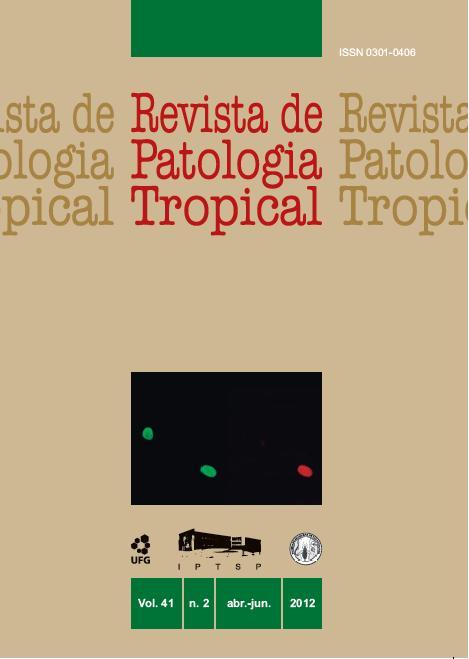The impact of the benznidazole and spironolactone combination in the evolution of the acute phase of Trypanosoma cruzi-infected mice
DOI:
https://doi.org/10.5216/rpt.v41i2.19322Keywords:
Trypanosoma cruzi, Acute phase, Association of benznidazole and spironolactone, Renin angiotensin aldosteron system, Mice.Abstract
Chagas disease, caused by the protozoan Trypanosoma cruzi, was the cause of 4,916 deaths in 2005 in Brazil, underscoring the importance of searching for new forms of treatment for these patients. Previous studies have shown that mice infected with T. cruzi present marked renal injury in the early stages of infection. Furthermore, the blockade of the cardiovascular and renal pathways (such as RAAS) reduced the mortality of the animals by 40%. Recently, it was observed that blocking aldosterone minimizes the loss of potassium and the cardiovascular effects of the infection with T. cruzi. The objective of this study was to evaluate the efficiency of the association between Bz and Sp on the physical condition of the infected mice. Comparing mice infected and treated with Bz / Sp, we observed that the association promoted a 100% survival, weight gain, maintenance of food intake and physical activity of animals.
Furthermore, the treatment corresponding to Bz only kept high levels of motor and exploratory activity, especially in the 15th dpi. Thus, we concluded that the association between Bz and Sp has a beneficial influence on the physical condition of mice during the acute phase trial.
Downloads
Downloads
How to Cite
Issue
Section
License
The manuscript submission must be accompanied by a letter signed by all authors stating the full name and email address, confirming that the material has not been published or is under consideration for publication elsewhere, and agreeing to transfer copyright in all media and formats for Journal of Tropical Pathology. The authors will not be paid for published articles. They are solely responsible for the content of those articles, even if the Editor holds the right to adjust them to the norms of the journal.
The reviewers will not be paid for the peer review process.

